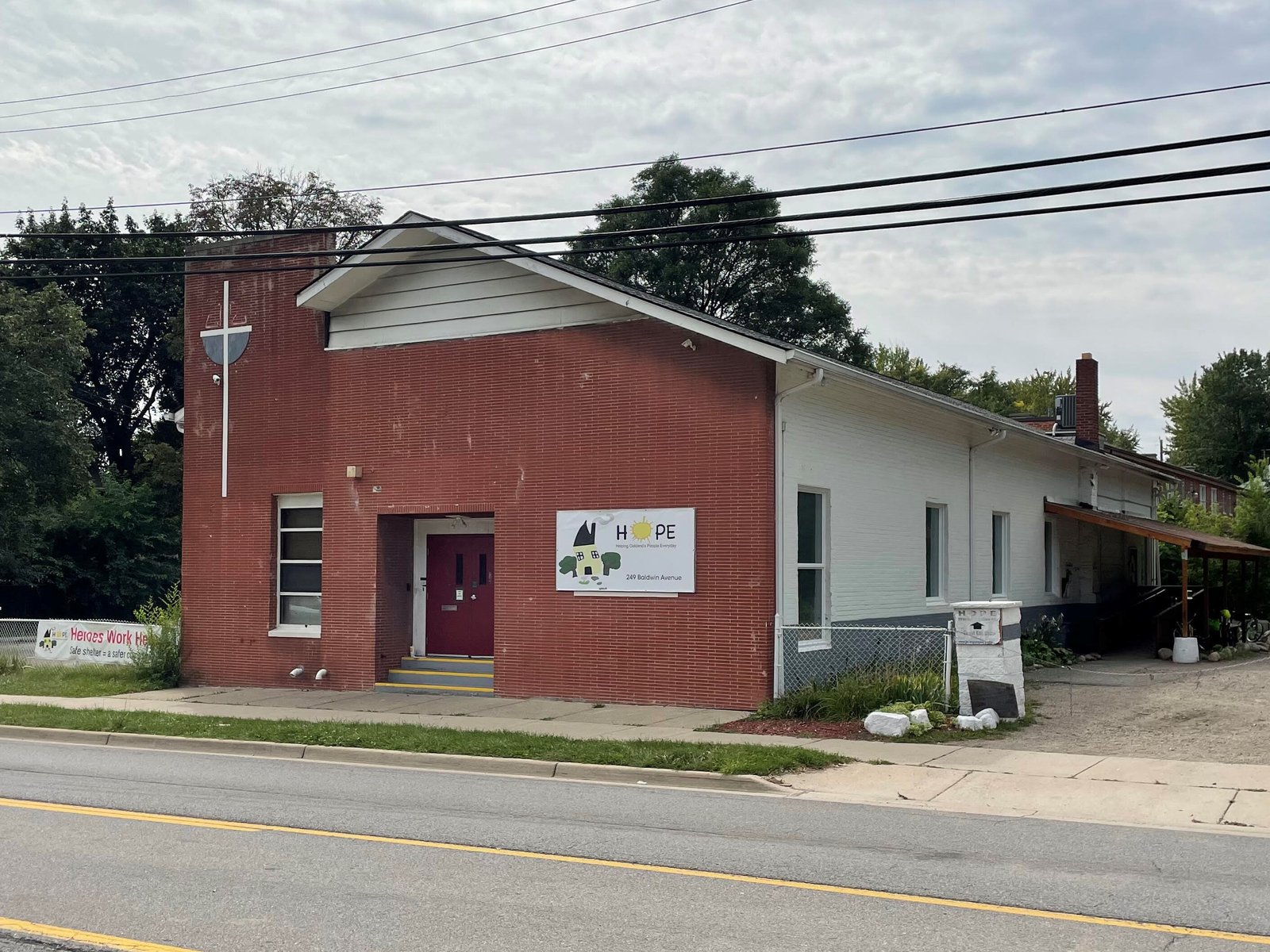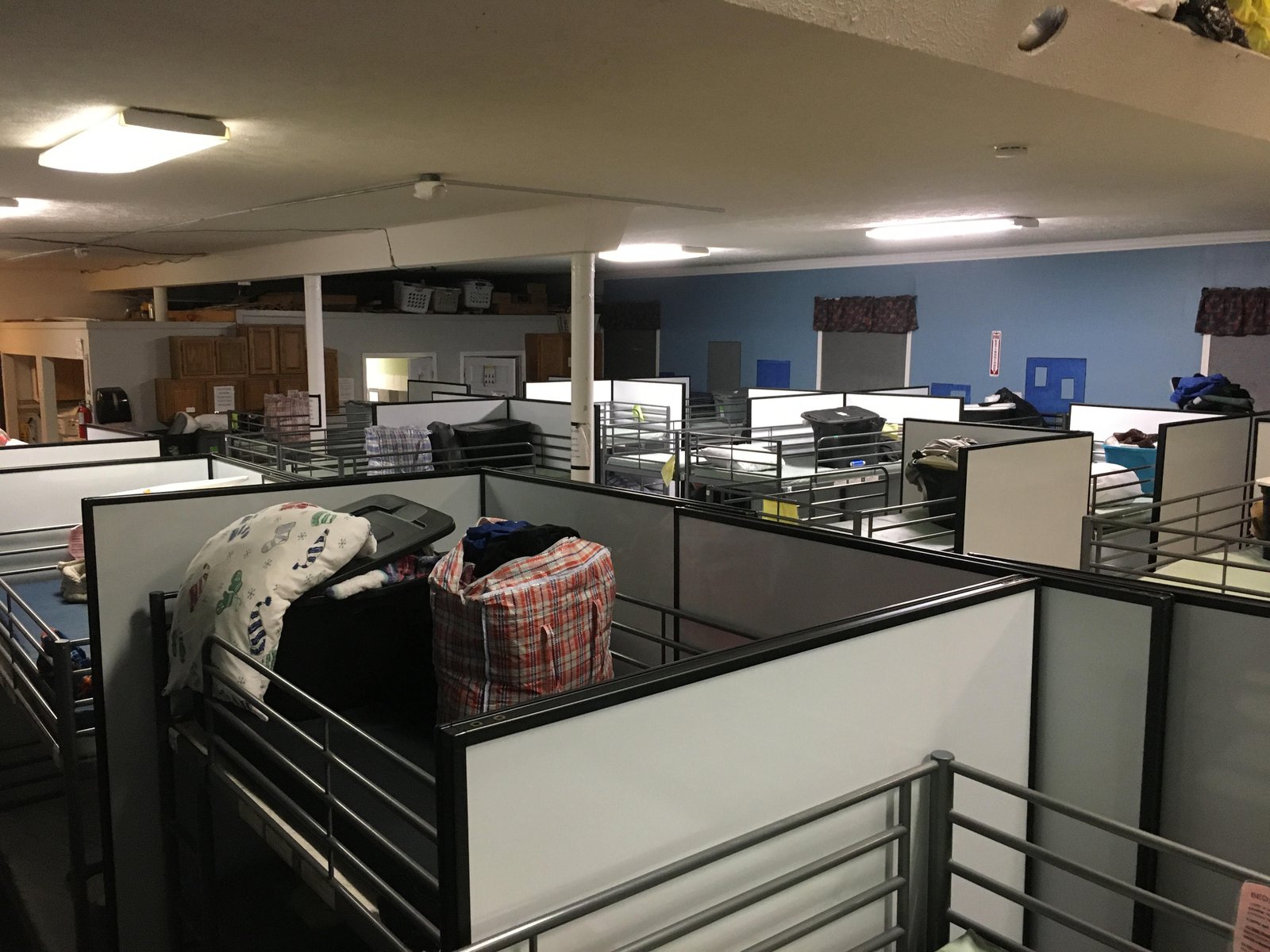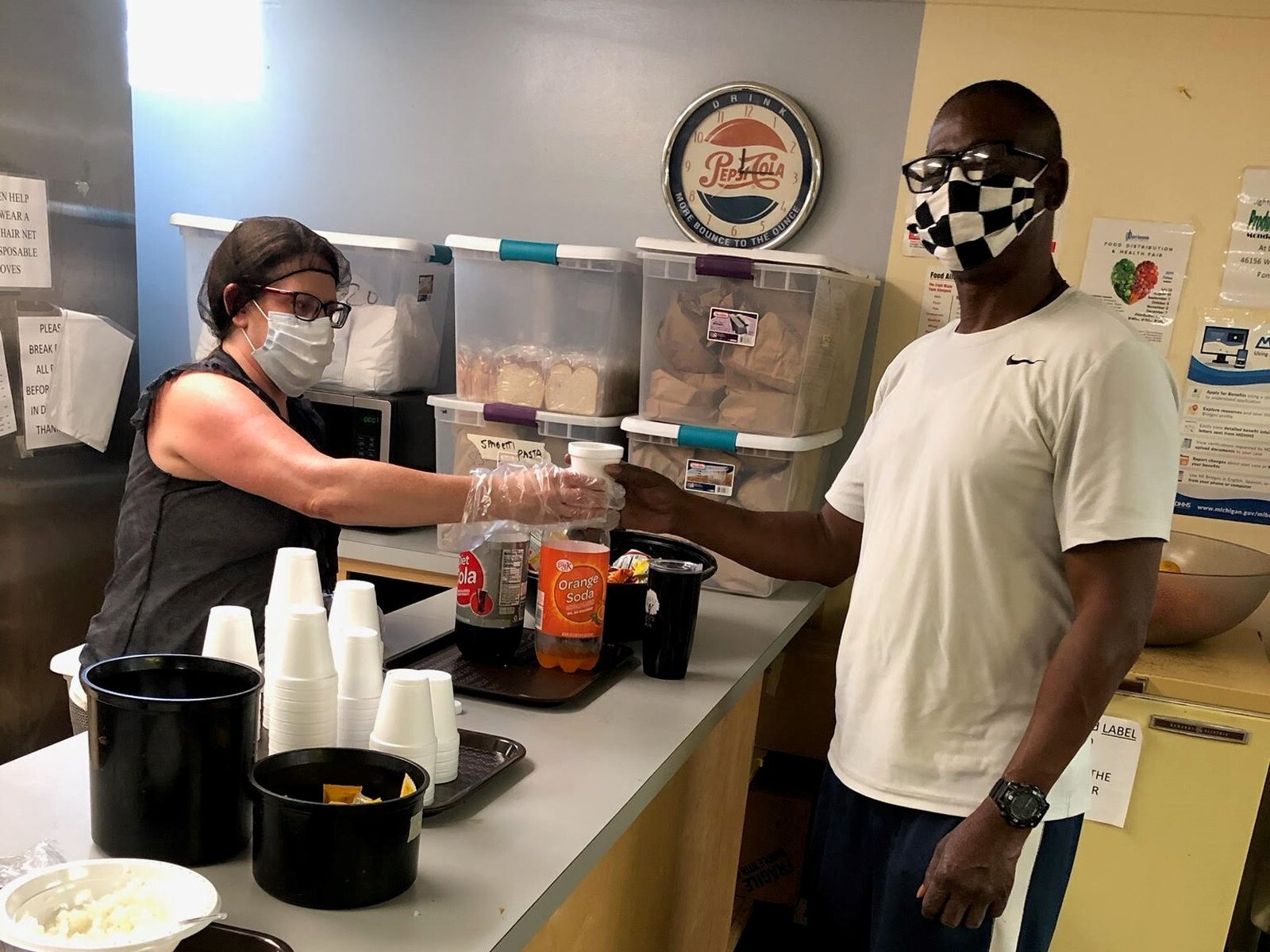Hope Shelters faces budget crisis after virus hits nearly 40 guests, staff: 'We're trying to protect people's lives,' director says
PONTIAC — In the wake of a COVID-19 outbreak, Pontiac’s HOPE Shelters, a vital refuge and resource center for those experiencing homelessness, finds itself grappling with a severe funding crisis.
Nearly 40 people, including five staff members, were infected at the shelter after mask mandates were lifted May 11. Of the 40, three experienced severe symptoms and two were hospitalized.
To prevent further spread of the virus, the shelter began masking in addition to isolating positive-testing individuals in motels, straining the shelters’ financial resources to a breaking point. Now, HOPE Shelters are urgently seeking support from the community to help weather the unprecedented challenge and continue their work of providing shelter and care for those in need.
“We're trying to protect people's lives who we know are much more vulnerable than the average person in our community,” HOPE Shelters executive director Brian Wright told Detroit Catholic. “We've got to go that extra mile to protect them.”


Approximately 95% of the shelter's guests and volunteers are vaccinated, but people who experience homelessness often have a weakened immune system, Wright said, and “because of that, we have to take extra precautions to try to keep people safe.”
During the outbreak, Hope Shelters spent about $18,000 to place guests in isolated hotel rooms, quickly straining the nonprofit's budget. Wright said the shelter received a $15,000 infusion from the local Continuum of Care (Alliance for Housing), but "we will be in trouble" if another outbreak occurs.
Founded in 1998 by a parishioner of St. John Fisher Chapel University Parish in Auburn Hills as a seasonal shelter for those vulnerable to the elements, HOPE began providing a year-round, low-barrier shelter in 2014. It added a second, recuperative shelter in 2015 for homeless individuals recently discharged from the hospital.
Before coming on as HOPE Shelters' executive director, Wright served as a minister in Assemblies of God and United Methodist churches, a transition he said he saw as “a natural progression of the mission of the church.”
“We need to take care of the people who are oftentimes forgotten or underserved, who are disadvantaged and too often don't have access to the basic needs they have or to opportunities,” he said.
By having a low-barrier model, HOPE shelters don't require guests complete sobriety or background checks.

“A lot of shelters screen people out based on their background, whether or not they have an ID, whether or not they're sober, but we don't weed out the difficult cases,” Wright said. “We work with people where they are, really trying to move them toward solutions.”
Each year, more than 400 people come into HOPE shelters, and of that number, more than 200 exit into permanent housing.
“Our goal is to get them from when they walk through our door until when they sign that lease and move into their own place,” said HOPE complex care service navigator Tom Baker.
As a complex care service navigator, Baker helps individuals create treatment plans by determining eligibility for local assistance programs and identifying any barriers that could hinder the housing process.
“Sometimes they need an advocate, sometimes they need a cheerleader and sometimes they just need someone to say, ‘You’re on the right track.’ Whatever it is, we try to provide that for them,” Baker said. “What I tell everybody is that, as long as they're working toward housing, I'll continue to work with them as long as it takes for them to be successful.”

During the recent COVID-19 outbreak, Baker tested positive and had to leave the shelter for five days. While he isolated at home, his fellow complex care service navigator stepped up, going “above and beyond” to help with the rest of the clients at the adult shelter.
“We would not be able to do the work that we do here, if not for the amazing staff and leadership,” Baker said. “That's the reason why I'm here and why I continue to do this.”
As the only low-barrier shelter for adults in Oakland County, 60 beds isn’t enough.
“Every day we're having to turn people away at the door because we just don't have the space,” HOPE Shelters chief operating officer Karen Plants said, adding the shelter hopes to expand its facility when funding is secured. “We want to be able to serve our guests the best we can. Not only keeping them safe during the pandemic, but having facilities for them to go to during non-crisis time.”
“We're hoping to raise standards and change the way sheltering is done," Wright said. "We're a good organization to invest in because we're really coming up with some more positive and more permanent solutions.”
To learn more about HOPE Shelters, visit hopeshelters.org. Those interested in supporting HOPE Shelters' work can make a donation online, send a check or visit the shelter at 249 Baldwin Ave. in Pontiac.










